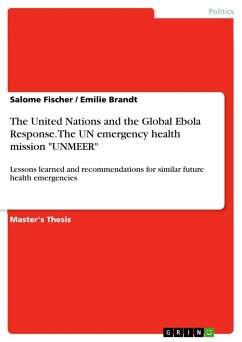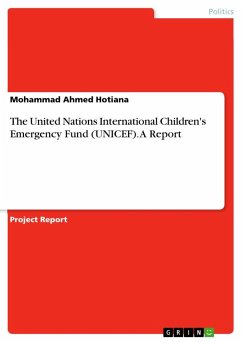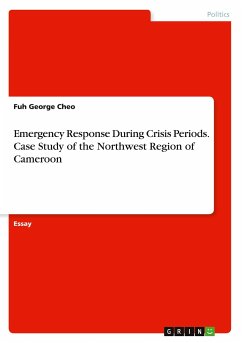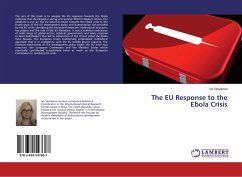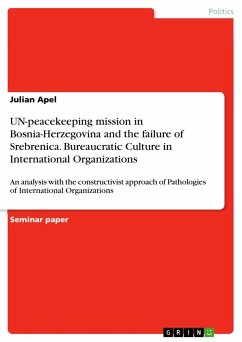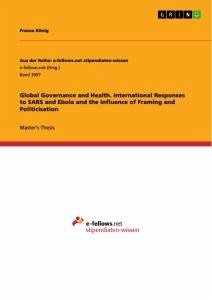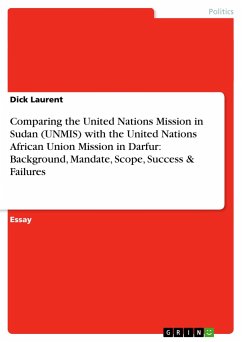Master's Thesis from the year 2015 in the subject Politics - Topic: International Organisations, grade: no grade yet, University of Aarhus, course: International Studies, language: English, abstract: The unprecedented scope and implications of the 2014 Ebola outbreak in West Africa has confronted the international community with challenges in responding to the crisis. On 19 September 2014, the first-ever UN emergency health mission, United Nations Mission for Ebola Emergency Response (UNMEER), was established. UNMEER was set up as a temporary mission to bring together UN agencies and capabilities in the response, and closely collaborate with governments, NGOs, Member States and other relevant actors, with the main strategic objective to stop the Ebola outbreak.This thesis investigates the effects of UNMEER on the global Ebola response as a whole and assesses whether the establishment of the mission was the right decision to make from the UN side in response to the outbreak. In this regard, the context in which UNMEER was established is scrutinized by examining the challenges faced in the outbreak and how these were approached by the international community. The analysis is predominantly based on qualitative primary data collected through individual semi-structured interviews with respondents who are or have been directly involved in the Ebola response, as well as on secondary data.Findings show that UNMEER had a positive impact on the response in various respects. The exceptional decision from the UN side to establish the first-ever emergency health mission increased worldwide awareness of the outbreak and catalysed a high-level political and financial international engagement in the response. Furthermore, there seems to be a positive attitude towards UNMEER's role in bringing together UN agencies under a single structure in the response as well as the logistics support provided by UNMEER to UN agencies and other partners working in the response. However, due to a lack of presence and a limited number of staff in the affected countries, effective collaboration with organizations involved on the ground did not sufficiently materialize. Findings indicate that overall, responders were not satisfied with UNMEER's impact on the ground. This seems to be rooted in i.a. a significant gap between responders' expectations and perceptions of UNMEER, due to lack of clear information from UNMEER's side on what exactly could be expected of the mission.Drawing on research findings and lessons learned from the outbreak, instead, existing resources and systems under the UN Office for the Coordination of of Humanitarian Affairs (OCHA) should have been reinforced.
Hinweis: Dieser Artikel kann nur an eine deutsche Lieferadresse ausgeliefert werden.
Hinweis: Dieser Artikel kann nur an eine deutsche Lieferadresse ausgeliefert werden.

